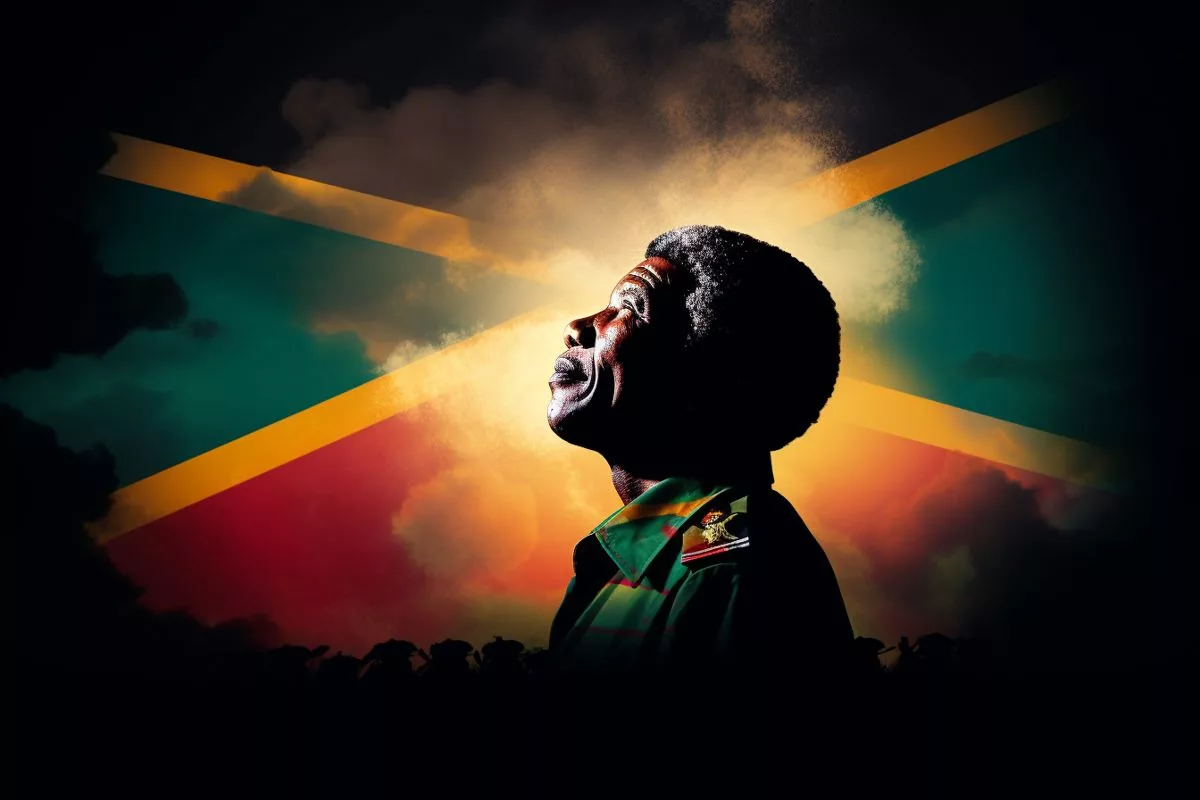Nelson Mandela was a remarkable man who fought against apartheid and became the first black leader of a democratic South Africa. He spent 27 years in prison for his beliefs, but his unyielding spirit remained strong. His release sparked international outrage, leading to the establishment of the Truth and Reconciliation Commission and his presidency. Despite his passing, his legacy lives on, and his words continue to inspire people worldwide to pursue knowledge and social progress.
Nelson Mandela is a name that resonates across the planet, symbolizing tranquility, fortitude, and unity. Born on July 18, 1918, in the small village of Mvezo, South Africa, Mandela grew into a towering figure who not only challenged the oppressive apartheid system but also emerged as the first black leader of a democratic South Africa.
Early Life and Activism
Mandela’s passion for learning led him to the University of Fort Hare and eventually to Johannesburg, where he earned his law degree. It was during these formative years that Mandela’s political activism began to take root. In 1944, he joined the African National Congress (ANC) and helped found the ANC Youth League alongside Oliver Tambo and Walter Sisulu. Mandela would later become the president of the ANC in 1991.
Imprisonment and International Outrage
Mandela’s unyielding defiance of apartheid led to several detentions, but his most significant imprisonment spanned 27 years, starting with the Rivonia Trial in 1964. During this time, he spent much of his sentence on the harsh terrain of Robben Island. Despite this adversity, Mandela’s spirit remained indomitable, and his commitment to his mission steadfast.
News of his ordeal sparked worldwide outrage, fueling an international anti-apartheid campaign. His release in 1990 marked a new beginning for South Africa. Mandela returned not with bitterness but with a distinct sense of purpose – to heal his homeland. The subsequent multiracial elections in 1994, won by the ANC, saw Nelson Mandela rise to the presidency.
Post-Presidency
Mandela’s presidency was marked by the establishment of the Truth and Reconciliation Commission (TRC), a move aimed at healing the wounds inflicted by apartheid. Though he retired after one term, his impact endured. Mandela received over 250 awards, including the Nobel Peace Prize in 1993.
On December 5, 2013, the world mourned the loss of Madiba, his beloved moniker. However, his legacy lives on. Every year, on Nelson Mandela International Day, people worldwide honor a man who embodied the ideals of liberty and equality.
Mandela’s Legacy
Recent social media posts reflect the far-reaching impact of Mandela’s legacy. His words from 1996, “Death is something inevitable…I believe I have made that effort and that is, therefore, why I will sleep for the eternity,” continue to resonate with many. Amidst these commemorations and reflections, we are reminded that his labeling as a terrorist by the US until 2008 underlines the complexity of the journey change-makers often experience.
As we pay tribute to his memory, let us not forget that Mandela firmly believed that “education is the most powerful weapon which you can use to change the world.” His wisdom continues to guide us, inspiring us to pursue knowledge and social progress.
Though we may have lost the man, his story – from the son of a tribal counselor to a global symbol of peace – reminds us of the power of perseverance and the importance of forgiveness. Nelson Mandela’s legacy is not merely a piece of South African history but a beacon of hope for oppressed individuals everywhere. Let us carry on his message with the same courage and grace that he embodied throughout his extraordinary life.
1. Who was Nelson Mandela and what did he do?
Nelson Mandela was a remarkable man who fought against apartheid and became the first black leader of a democratic South Africa.
2. How long was Mandela imprisoned and what did he do during that time?
Mandela was imprisoned for 27 years, during which time he spent much of his sentence on the harsh terrain of Robben Island. Despite this adversity, Mandela’s spirit remained indomitable, and his commitment to his mission steadfast.
3. How did Mandela’s release impact South Africa?
Mandela’s release sparked international outrage, leading to the establishment of the Truth and Reconciliation Commission and his presidency. Mandela returned not with bitterness but with a distinct sense of purpose – to heal his homeland. The subsequent multiracial elections in 1994, won by the ANC, saw Nelson Mandela rise to the presidency.
4. What was Mandela’s legacy?
Mandela’s legacy lives on. Every year, on Nelson Mandela International Day, people worldwide honor a man who embodied the ideals of liberty and equality. His wisdom continues to guide us, inspiring us to pursue knowledge and social progress.
5. What did Mandela believe was the most powerful weapon to change the world?
Mandela firmly believed that “education is the most powerful weapon which you can use to change the world.”








